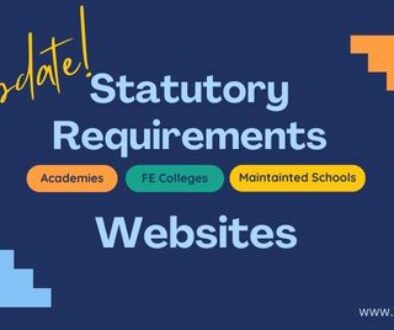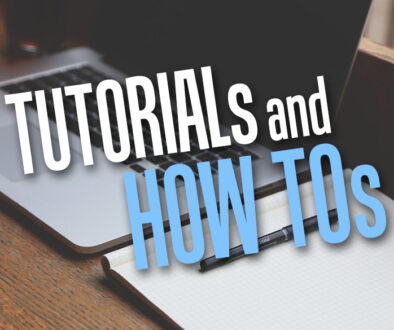Misconceptions in the Teaching and Learning of Science
The universal questions of how to attract more students in to Science and how to make Science learning easy and fun have been raised countless times in as many years. The recurrent theme of it being hard to attract students in to the learning of Science has become Universal as it is faced not only in the UK but is also a challenge simultaneously accorded almost throughout the rest of the world.
At the heart of this challenge, I believe, lies beliefs, many of them mistakenly constructed around the concept that Science is difficult. The picture of a mad-scientist, often alluding to Einstein with his fuzzy hair, makes the idea of Science both simultaneously out of reach for the average student and aimed primarily at the geek or the nerd.
On a social level, Science does need to shirk the geeky image and personalities such as psychologist Dr Tanya Byron, Google’s Marissa Mayer do, to some extent contribute to the idea that Science can be available and approachable to the average Jane and Joe.
However, at the core of this lies the fact that many misconceptions surround both the teaching and learning of Science.
The Science Teaching Reconsidered : A Handbook (Chapter 4; 1997) very elegantly details the misconceptions within the teaching of Science and how these misconceptions can often be significant barriers in promoting the understanding of science as opposed to the simplistic parrot-learning of scientific facts.
Extracted from Science Teaching Reconsidered : A Handbook (Chapter 4; 1997):
Misconceptions can be categorized as follows:
- Preconceived notions are popular conceptions rooted in everyday experiences. For example, many people believe that water flowing underground must flow in streams because the water they see at the earth’s surface flows in streams. Preconceived notions plague students’ views of heat, energy, and gravity (Brown and Clement, 1991), among others.
- Nonscientific beliefs include views learned by students from sources other than scientific education, such as religious or mythical teachings. For example, some students have learned through religious instruction about an abbreviated history of the earth and its life forms. The disparity between this widely held belief and the scientific evidence for a far more extended pre-history has led to considerable controversy in the teaching of science.
- Conceptual misunderstandings arise when students are taught scientific information in a way that does not provoke them to confront paradoxes and conflicts resulting from their own preconceived notions and nonscientific beliefs. To deal with their confusion, students construct faulty models that usually are so weak that the students themselves are insecure about the concepts.
- Vernacular misconceptions arise from the use of words that mean one thing in everyday life and another in a scientific context (e.g., “work”). A geology professor noted that students have difficulty with the idea that glaciers retreat, because they picture the glacier stopping, turning around, and moving in the opposite direction. Substitution of the word “melt” for “retreat” helps reinforce the correct interpretation that the front end of the glacier simply melts faster than the ice advances.
- Factual misconceptions are falsities often learned at an early age and retained unchallenged into adulthood. If you think about it, the idea that “lightning never strikes twice in the same place” is clearly nonsense, but that notion may be buried somewhere in your belief system.
From Science Teaching Reconsidered : A Handbook (Chapter 4; 1997)
In the current eudcation system, a fine balance lies between the effectiveness of superficial surface learning of a broad overall syllabus and an in-depth experience-based constructivist approach to Science teaching and learning.
In essence, for a misconception to be corrected, it often seems to be that ‘unlearning’ has to be carried out in order for ‘re-learning’ to occur, through this process however, the misconception has to be carried through and the ‘re-learning’ has to be experienced and not just taught as a memorisable fact.
This process is very elegantly detailed, interleaved with a discussion on the teaching of Science in Watson,B. and Kopnicek, R.’s Teaching for Conceptual Change: Confronting Children’s Experience.
If you are a Science teacher and have had experience of deconstructing misconceptions, or if you have any thoughts or ideas, please do leave a comment.
Reference:
Science teaching reconsidered : a handbook / [prepared by the] Committee on Undergraduate Science Education. 1997 Washington : National Academy Press.
Author: Li-ling Ooi
Copyright © Xelium Ltd. All Rights Reserved. This article cannot be used in part or whole without expressed permission or license from Xelium Ltd. The author of this work and Xelium Ltd reserves all rights to the content of this website as the original creator and owner.
See also:
Enhancing Science Teaching and Learning with Virtual Resources


Tweets that mention Misconceptions in the Teaching and Learning of Science « XELIUM : clarity defined -- Topsy.com
5 May 2010 @ 11:21 am
[…] This post was mentioned on Twitter by Samuel Tan, Samuel Tan. Samuel Tan said: talks about Misconception in Teaching and Learning of Science https://www.xelium.co.uk/?p=803 […]
Watching Videos for Homework, Flipping the Classroom: Do you do it in your class? Your thoughts, please? « XELIUM : clarity defined
3 April 2011 @ 4:36 pm
[…] While flipping classes makes a point of allowing the teacher more time to concentrate on helping the children master exercises in class, being a point of contact for a child to ask questions if need be, prescribing a video does not in effect guarantee that the knowledge the child has built is accurate or correct (see our earlier article on Misconceptions in Teaching and Learning of Science). […]
Myth Making | Wastefull Thoughts
9 August 2012 @ 6:07 pm
[…] Science Educators Classified Misconceptions […]
Flip Your Lesson, Watching Video for Homework | Colour My Learning
19 November 2012 @ 1:28 pm
[…] While flipping classes makes a point of allowing the teacher more time to concentrate on helping the children master exercises in class, being a point of contact for a child to ask questions if need be, prescribing a video does not in effect guarantee that the knowledge the child has built is accurate or correct (see our earlier article on Misconceptions in Teaching and Learning of Science). […]